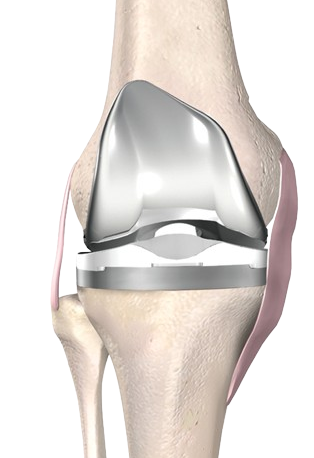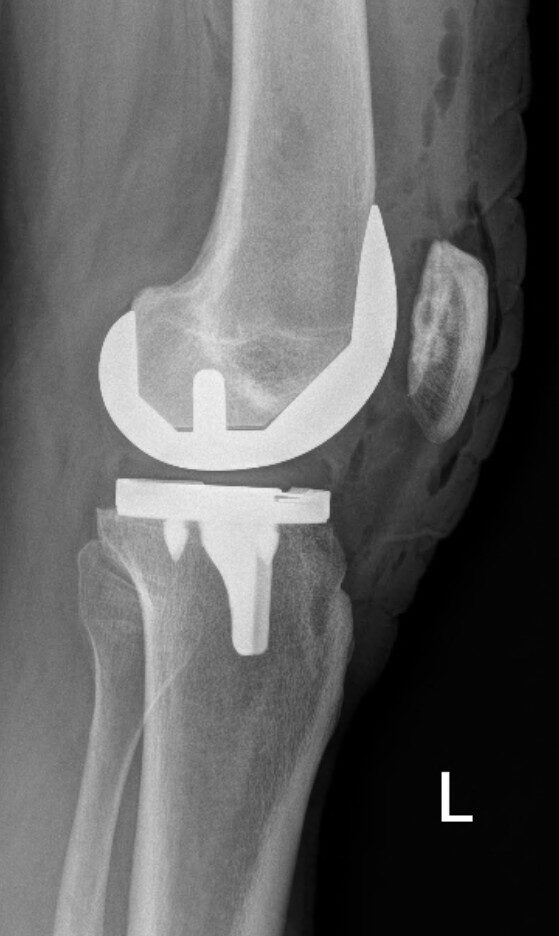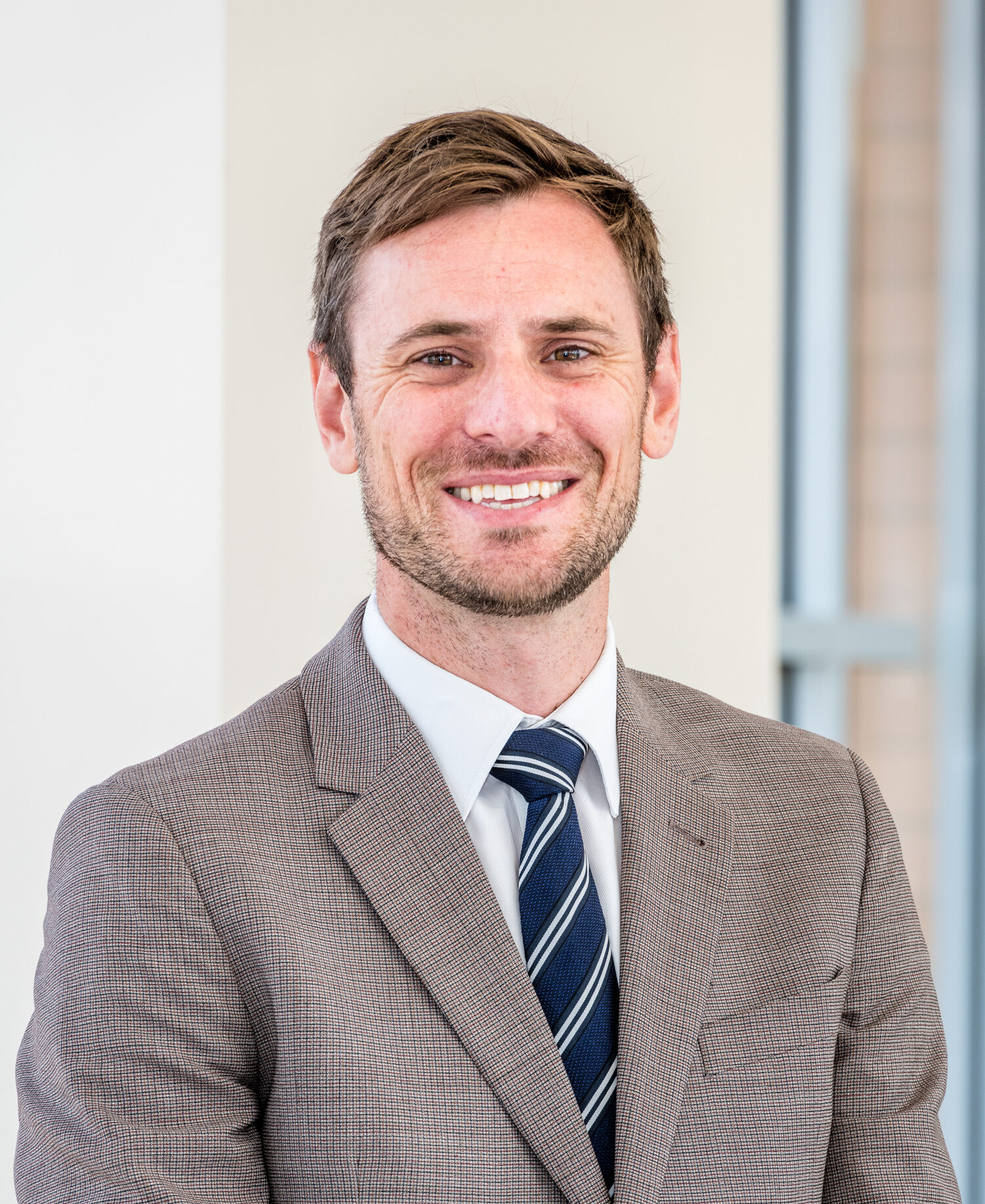Continuing light physical activity and strengthening exercises
Relieve pain, restore movement, and return to an active lifestyle through a robotic-assisted total knee replacement with Dr. Duff.

A knee replacement is a very successful operation but is a significant undertaking that needs commitment to achieve the desired outcome. It can improve pain, stiffness, mobility and function when you are significantly impaired by arthritis.
It works very well for severe arthritis but isn’t an intervention for early disease. It involves resurfacing the bones that make up the knee joint with a metal and highly engineered plastic bearing.

After successful rehabilitation patients can expect to be able to walk without restriction, cycle, swim and perform moderate physical activity. It isn’t designed to run, ski or perform vigorous exercise.
Most patients feel they are better than before the operation at 4-6 weeks after the surgery but still feel they are improving up to 9 months later.
Typically patients will drive 4-6 weeks after the surgery and leave walking aids at a similar time
Many remedies are suggested for arthritis of the knee and some have scientifically proven benefits whilst others are not proven. Those with proven benefits include:
A knee replacement is a major operation and you should be in the best possible shape to minimise the risks and maximise your outcome.
Blood tests and an ECG / echo of your heart are performed to ensure you are in optimal health.
A 3 dimensional scan of your lower limb and knee is performed to generate a model for robotic knee replacEment.
Continuing light physical activity and strengthening exercises
Moving the knee through range of motion
Reducing your weight
safely
Reducing or stopping any strong / opioid based medications
Avoid any injection into the knee within 3 months of your replacement
Optimise skin condition avoiding scratches especially in the 2 weeks prior to surgery
Dr Duff performs a robotic assisted knee replacement to accurately resurface your knee.
The robot helps to plan and perform the cuts of the knee replacement but the surgeon is always in control and performs many steps of the operation the same as if a robot wasn’t used. Typically a tourniquet isn’t used to help post operative pain and swelling.
Whilst in some countries patients undergo knee replacements as day surgery, in Australia patients generally stay 2-3 days in hospital. You can expect to wake from the procedure in little to no pain and stand the day of the surgery.
Controlling swelling is key to keeping post operative pain levels in check and is best achieved with a combination of:

Knee replacements offer excellent improvements in pain and function in arthritic knees. They are a very well studied intervention and in Australia over 99% are monitored long term by our world leading national joint registry .
The majority of patients achieve success in knee replacement and are able to walk better, have a straighter leg which moves better and is stronger.
Most patients stay 2-3 nights in hospital. They walk on the first day after the surgery and stand and bend the knee as soon as the anaesthetic wears off. The knee is strong enough for full weight bearing and movement immediately. Patients typically drive at 4-6 weeks and can commence exercises in the pool at 2 weeks.
Most pain killers have stopped at 3-4 weeks and office duties recommenced at this time. Walking the golf course or equivalent is around 10-12 weeks. Achieving full strength and when you start forgetting about the operation approaches 6-9 months.
Robotic knee surgery involves the assistance of a specialised robot to achieve the highest available accuracy in knee replacement technology.
There are now several models of knee replacement robots to assist surgeons. Several of these have proven to increase survival of knee replacement implants compared to implanting knee replacements without their assistance.

Dr. Duff operates at Hollywood Private Hospital and St John of God Subiaco, with public appointments at Sir Charles Gairdner and Osborne Park Hospitals.
Schedule a consultation today to discuss your knee replacement options and regain your quality of life.